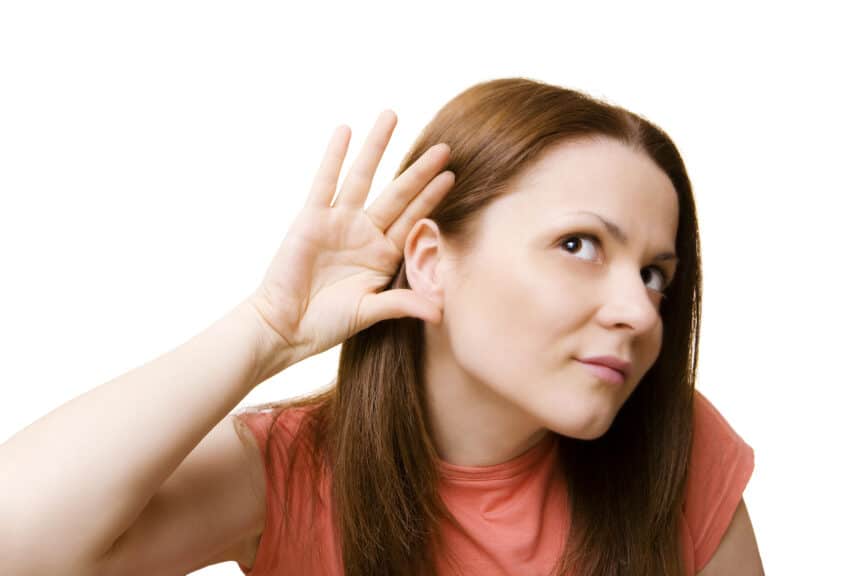Imagine feeling like you’re walking on a boat, even when you’re standing on solid ground. Or feeling like the world around you is always spinning. These are just a couple of the disorienting sensations that can come with balance problems.
Balance is an important aspect of our daily lives that often goes unnoticed until it is compromised. Whether you’re going for a walk, climbing stairs, or just standing still, balance is what keeps us steady and prevents falls. So, it may come as a surprise to learn that something as seemingly unrelated as hearing loss can have a significant impact on balance. In fact, research has shown that using hearing aids can improve your sense of balance, making everyday activities safer and more comfortable.
Balance and the Vestibular system
Balance is the ability to keep the center of mass of your body over your base of support.
A well-functioning balance system lets people see clearly while moving, figure out where they are in relation to gravity, figure out the direction and speed of their movement, and automatically adjust their posture to keep their posture and stability in different situations and activities.
Balance is achieved and kept by a complex set of sensorimotor control systems. Among other things, these include sensory input from sight, touch, and the vestibular system. The vestibular system is in the vestibule, which is a part of the inner ear. This is how it got its name. The vestibule is connected to the cochlea, which is a part of the inner ear that helps with hearing. There are two organs in the vestibule: the semicircular canals and the otoliths.
When we move our heads, information is sent to the vestibular system. We can move our heads up and down (like when we say “yes”) and side to side (e.g. nodding no). We can also move our ear down toward our shoulder. With the help of our bodies, the head can also move forward, backward, to the side, and up and down. Basically, we can move our heads in any direction. This movement tells our vestibular system where we are in space and how fast or slow we are moving, which helps our brain figure out where we are and how fast or slow we are moving.
How Hearing Loss Affects Balance
As we age, our hearing naturally deteriorates, and this can lead to balance problems. This is because our ears play a crucial role in maintaining balance by sending signals to the brain about our surroundings. When we can’t hear well, we can’t process these signals correctly, which can make us feel off-kilter. Additionally, hearing loss can make it harder to orient ourselves in space, leading to difficulties with spatial awareness.
Balance problems caused by hearing loss can manifest in a variety of ways. For example, some people may feel dizzy or lightheaded, while others may experience vertigo, a sensation of spinning or swaying. Others may have trouble walking or standing up, especially in unfamiliar or dimly-lit environments. These symptoms can be especially troubling for older adults, who are already at a higher risk of falls.
We know that falls can be very bad for older people. Falls can cause injuries that could make it hard to move around and live on your own. Because of this, seniors and the people who care for them should always try to avoid falling.
This sense is kept in check by the vestibular system, which is part of the inner ear. It is linked to the brain by a nerve that also controls hearing and balance. This system also gets information from your eyes, neck, and spine so it can keep you feeling balanced. When this system isn’t working right, it can throw off a person’s sense of balance.
How Hearing Aids Can Help
Hearing aids can improve balance by amplifying sounds and providing better spatial awareness. When we can hear better, we can process sounds more accurately, which allows us to orient ourselves in space more effectively. This improved spatial awareness makes it easier to navigate our environment, reducing the risk of falls. Additionally, hearing aids can help to reduce symptoms of dizziness and vertigo by providing a more stable auditory input to the brain.
Research has supported the link between hearing aids and improved balance. In one study, older adults with hearing loss who used hearing aids reported significant improvements in balance, compared to those who did not use hearing aids. Additionally, another study found that older adults who used hearing aids had a lower risk of falls than those who did not.
We’re here to keep you steady with our hearing treatments
Choosing a hearing aid can be a complex process, and it’s important to work with an audiologist or hearing specialist to find the right device for you. The first step is to get a hearing test, which will determine the severity of your hearing loss and help to identify which type of hearing aid may be best suited to your needs. Contact us today to set up an appointment.

